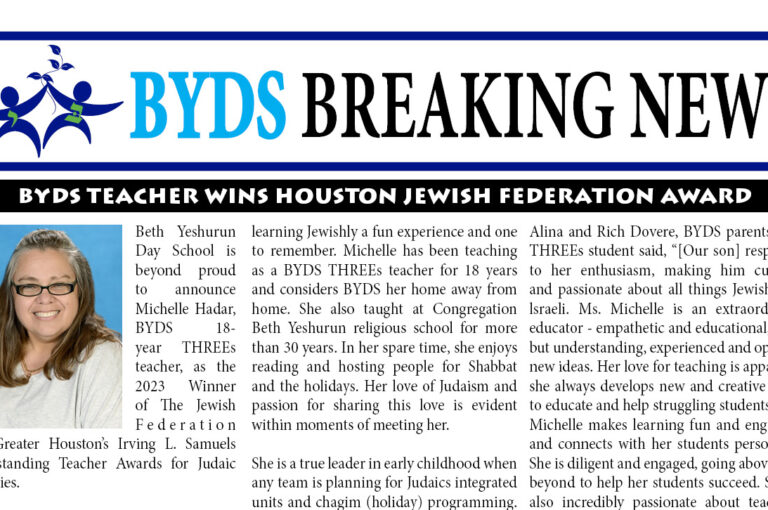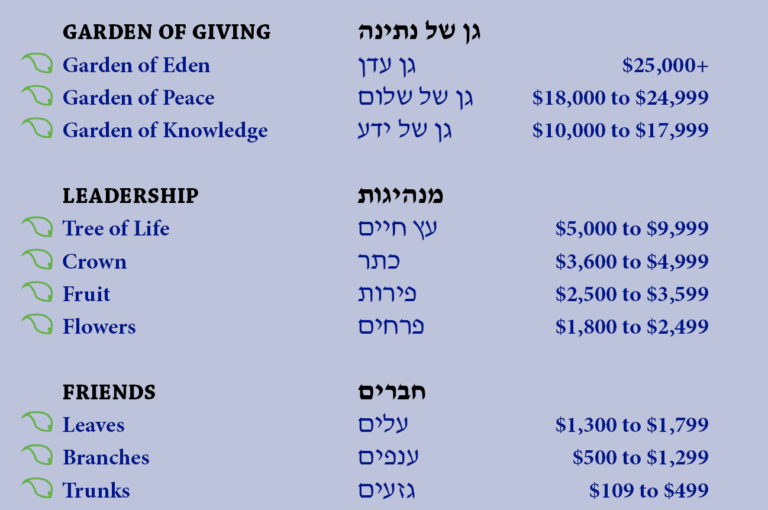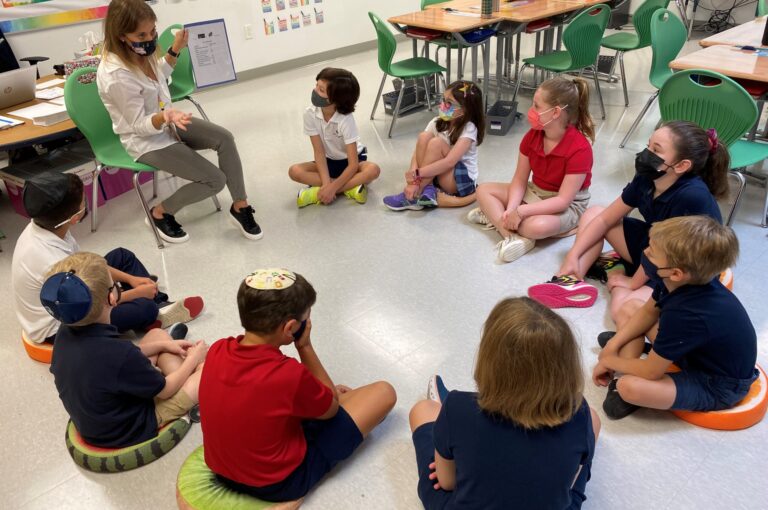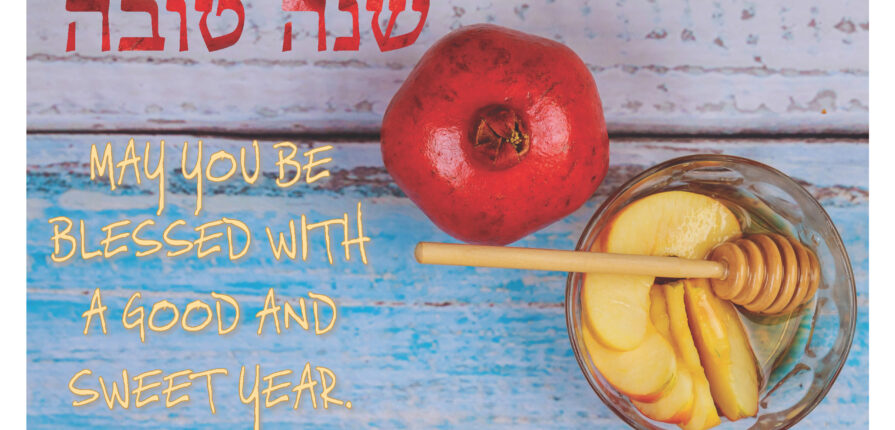As we close out the month of Elul – the last month in the Jewish calendar – I want to share with you with some information about the upcoming Jewish High Holidays.
Like Shabbat, Rosh Hashanah, Yom Kippur, Sukkot ( the 1st two days), Shemini Atzeret, and Simchat Torah, are bound by deeper levels of observance by many Jews around the world.
Rosh Hashanah begins at sundown on Friday 9/18 and ends at sundown on Sunday 9/20.
Rosh Hashanah (the Jewish New Year) is simultaneously a time of great celebration and subtle trepidation. It is a day to celebrate our creation, but also a day of accounting and judgment for our actions. On Rosh Hashanah, we relate to God as the ultimate judge. The symbolic Book of Life is opened and we become advocates for our personal inscription in it. We review the choices we have made over the past year, our actions and our intentions, as we attempt to honestly evaluate ourselves. We also blow the shofar during the month of Elul, at Rosh Hashana services, and at the end of Yom Kippur. A shofar is a ram’s horn that is blown like a trumpet. The four sounds of the shofar – tekiah, shevarim, teruah, and tekiah gedolah – remind many people of a crying voice. Hearing the shofar’s call is a reminder for us to look inward and repent for the sins of the past year.
Yom Kippur begins on Sunday evening 9/27 and ends late on Monday. Please make sure that nothing is due on that Tuesday 9/29.
Yom Kippur is the Day of Atonement, when we ask forgiveness for the wrongs we have committed over the past year. Jewish tradition believes that on this day God places a seal upon the divine decrees affecting each person for the coming year. Traditionally, Jews fast on this somber day. Prayer is the other central component of the holiday. The evening of Yom Kippur begins with Kol Nidrei, a prayer that is repeated three times and asks that all vows and oaths that we have made throughout the year be forgiven so we can start the new year with a clean slate. Another major prayer is the Viddui, or confession, which includes Ashamnu and Al-Chet, prayers which list all the sins that we in the community have committed. Jewish tradition believes that on this day God places a seal upon the divine decrees affecting each person for the coming year. Traditionally, Jews fast on this somber day.
Sukkot begins at sundown on Friday, October 2 and the major observance part ends on Sunday at sundown. Monday-Friday are intermediate days, which for us mean homework is permitted, but should remain minimal as this is a time for families to spend together in a Sukkah eating their meals outside. Sukkot is named after the booths or huts (sukkot in Hebrew) in which Jews are supposed to dwell during this week-long celebration. According to rabbinic tradition, these flimsy sukkot represent the huts in which the Israelites dwelt during their 40 years of wandering in the desert after escaping from slavery in Egypt. The festival of Sukkot is one of the three great pilgrimage festivals (chaggim or regalim) of the Jewish year. The origins of Sukkot are found in an ancient autumnal harvest festival. The sukkah also represents the huts that farmers would live in during the last hectic period of harvest before the coming of the winter rains.
A sukkah has at least three sides with a roof made out of thatch or branches to provide some shade and protection from the sun, but also allows the stars to be seen at night. It is traditional to decorate the sukkah and to spend as much time in it as possible. Weather permitting, meals are eaten in the sukkah, and the hardier among us may also elect to sleep in the sukkah. In a welcoming ceremony called ushpizin, ancestors are symbolically invited to partake in the meals with us. And in commemoration of the bounty of the Holy Land, we hold and shake four species of plants (arba minim), consisting of palm, myrtle, and willow (lulav ), together with citron (etrog ).
Shemini Atzeret begins at sundown on Friday, 10/9 and ends Saturday night and Simchat Torah begins at the end of Shemini Atzeret and ends on Sunday, 10/11.
Coming at the conclusion of Sukkot are the two holidays of Shemini Atzeret and Simchat Torah. In Israel and among liberal Jews they are combined into one holiday. Among more traditional Jews outside of Israel, they are observed separately from one another on two consecutive days. Shemini Atzeret means the “Eighth Day of Assembly,” while Simchat Torah means “Rejoicing in Torah.” The final portion of the Book of Deuteronomy is read in the synagogue followed by the beginning of the Book of Genesis. In this manner, the annual cycle of Torah readings continues unbroken. During a typical year unlike this one, Simchat Torah is the day on which the whole community gathers to come into direct contact with the Torah and to express our joy in having received it.
The 10 days between Rosh Hashanah and Yom Kippur are called the Days of Awe. During this time, we reflect on the past year, do our best to make amends with those we care about and resolve to do better, to be better in the coming year.
It’s Never Too Late to Change
As long as the candle is still burning, it is still possible to accomplish and to mend. – Rabbi Yisrael Salanter
One night, Rabbi Salanter was walking home, past the home of a shoemaker. Despite it being very late, he observed the shoemaker was still busy, working by the light of a single candle. “Why are you still working?” Rabbi Salanter asked him. “It is very late and soon the candle will go out.” The shoemaker replied “As long as the candle is still burning it is still possible to accomplish and to mend shoes.” In his wisdom, Rabbi Salanter realized this message is true for all of us. It’s never too late to change.
L’Shanah Tova U’Metukah
Happy and Sweet New Year to our entire BYDY Family
Ariel Rozen
Principal of Jewish Life and Admissions Advisor












